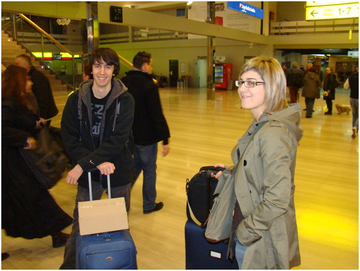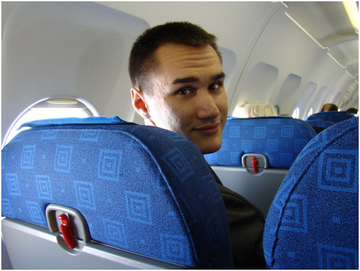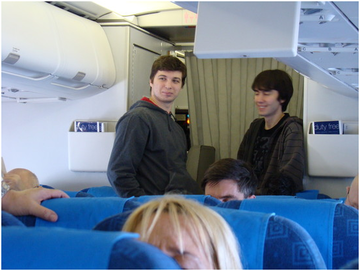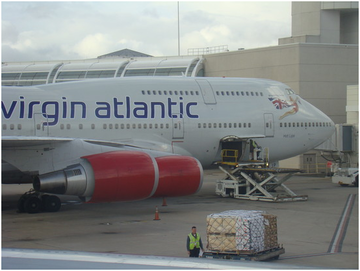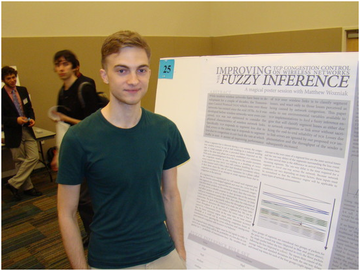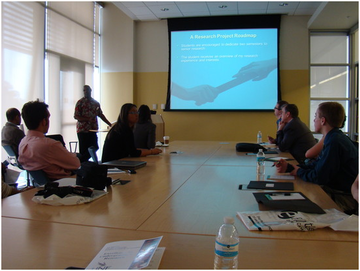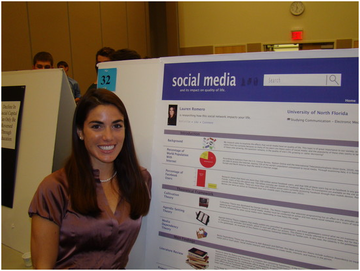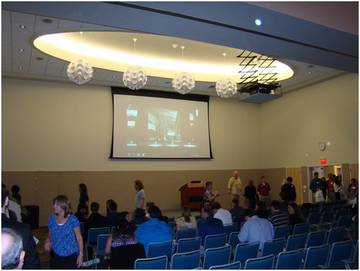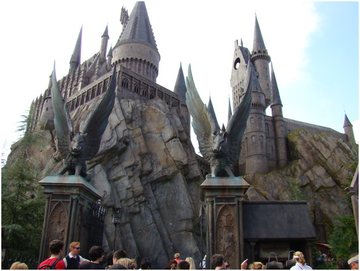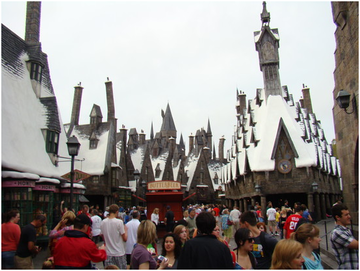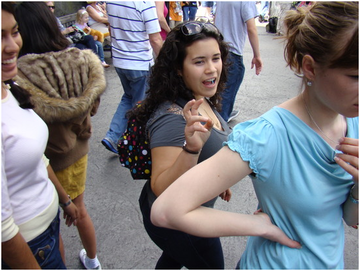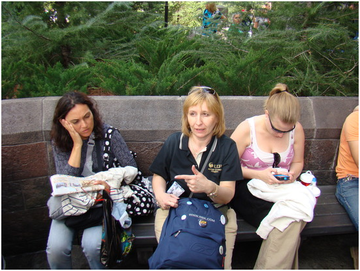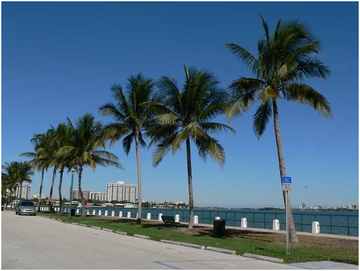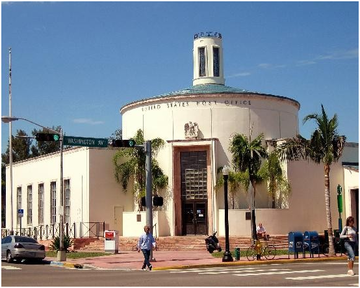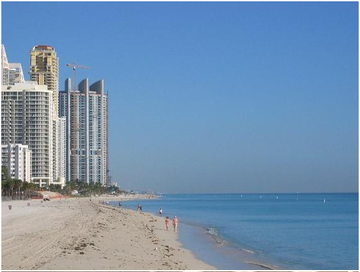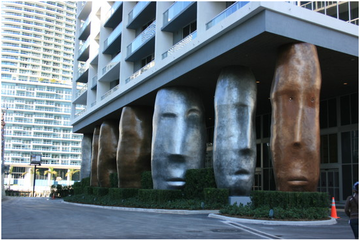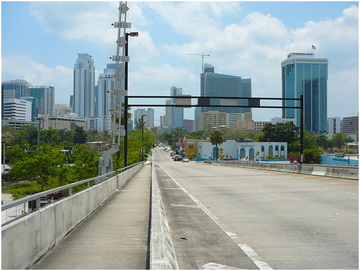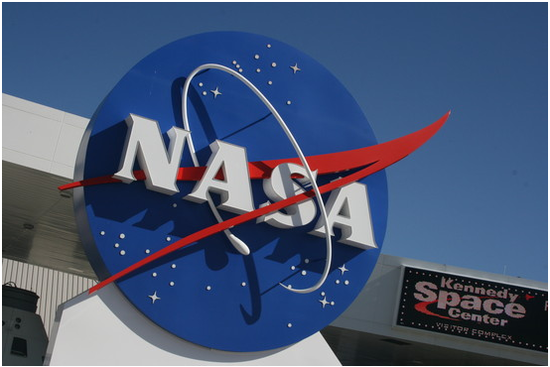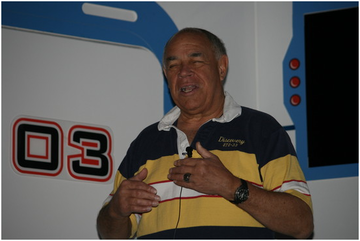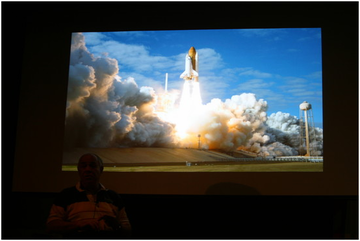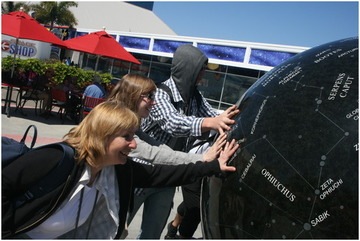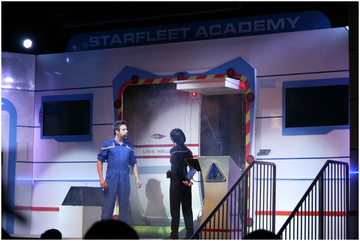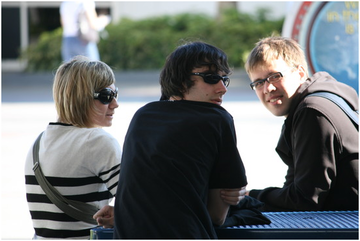Matija Kapić
After a long waiting the day came when we had to go on a trip to USA. Passport and all the other documents that might be required for entrance in US are in place and we’re header for the airport.
We traveled a total of 12.5 hours plus 4 hours of waiting at Gatwick airport in London. Although we should come to our destination at 5:25 PM we were a bit early and our plane landed at 5:00 PM so we surprised our hosts with such an early arrival.
Weather in Florida is a bit warmer than it is currently in Croatia so that we could wear short sleeves. In the picture above is Laura who was last year visiting FOI. She learned a little bit of Croatian and wrote “Dobrodošli kući” so we could feel like at home. Our accommodation is located in new campus which was recently built – “Rosen Campus”. There we were greeted with fine dinner that Lili prepared for us. Lili was also visiting FOI last summer. So that’s all for the first day, soon I’ll post more content.
Florida Statewide Student Research Symposium
Once we were settled and rested from the flight our hosts took us to the first conference of many that we planned to attend. This conference was held at the University of Florida. Since this is a university located in Jacksonville we were required to wake up at 5.30 AM so we could be there on time. We have seen many different researches from many students and I personally managed to find some papers that seemed quite interesting.
The first paper deals with the wireless network congestions caused by disturbances in the signal. The idea is that by use of fuzzy logic hardware should detect a loss caused by disturbances in signal and differentiate it from loss created by other factors. Currently the implemented solution exists but there are still some problems with TCP protocol which authors are currently trying to overcome. When this work will be completed it should enable faster data transmission through wireless networks. On the picture below you can see the poster and its author (and Alen behind).
Unfortunately we were a bit late for firs poster session so I managed to find there only one paper. Later we attended lectures that were planned after firs poster session. I went on a lecture held by H. Price from Stetson University and he was talking how they motivate and mentor students during their research. His lecture seemed very interesting because he gave me different perspective on that matter. The case at our university is that student chooses research topic in the last semester, writes a thesis and that’s it, some even don’t do a real research. At University of Stetson they spend two semesters only on motivating students so they could choose a right topic for research and be satisfied with that choice. Later during the research student is guided through the whole process of research by his mentor. The best part is they try to develop critical thinking in students during their research so that students could later on solve other problems in their lives better.
After the lectures there was second poster session which we attended. In case you don’t know what is the purpose of poster let’s say that it is a short presentation of some work because people don’t have time to read all the papers so they tend to look at short presentation and if they are interested they will check the full work described on poster. I think that it would be great idea to make such presentations events at FOI. During the second poster session I ended up surrounded with papers about social networks and I checked three posters which were a bit overlapping.
One author was researching how social networks affect society’s perception of the world. She came to conclusion that people who spent too much time on social networks, specifically Facebook, are not informed about news that happen in the world that really matter. That’s because they check only the newsfeed with news from their friends and if their friends don’t post something about news in the world they probably won’t know about it. Second poster was about “Self-monitoring” theory and the third one was researching what low self-monitoring and high self-monitoring people do on social networks. Self-monitoring theory recognizes two types of people:
- Low self-monitoring and
- High self-monitoring
Low self-monitoring people have small number of friends but they are loyal to them. They tend to keep a lot to themselves. High self-monitoring people have big number of friends and they adapt to any situation depending on where and with whom they spend their time. While using social networks low self-monitoring persons tend to share a lot of content about them and spend long periods of time at once logged in social network. The high self-monitoring persons rather log in more often but spend significantly shorter periods of time logged in and they mostly collect information about people who are their friends. High self-monitoring persons are not sharing much information about themselves.
St. Augustine
After the conference in Jacksonville our hosts took us in St. Augustine where we were sightseeing a bit. St. Augustine is place founded by Spanish empire during the times when Spain was colonizing the world and when it was the most powerful empire. The Spaniards had there their stronghold in which they guarded Spanish treasure. Because people were allowed to own a land in St. Augustine (which was not the case in Spain in that time – the King owned all land) a lot of young people applied regularly for army service there. Having a piece of own land was a great accomplishment in that time.
Today at the stronghold volunteers perform canon shooting for tourists so that we could get a small glimpse of how was to live in those time in the stronghold. Below you can see a video of that exercise.
http://www.youtube.com/watch?v=B00cQyD6xtk
Universal studio
On the Sunday our hosts prepared a great trip to Universal Studios for us. We decided to go on Island of Adventures where the biggest attraction currently is Harry Potter world. The place is so big it takes whole day to go on all rides so if you ever plan a visit to Universal Studios plan two days.
More or less our day was full of rides on rollercoasters and buying gifts for our friends but we also met few new friends. What I have noticed in USA is diversity. So far I have met only two people who are real Americans and all other people have origin outside of US. That was great for us because those people understood how we feel in US and they tried their best to make our stay great (and they did excellent). Our hosts were very open for all our suggestions and needs so that our stay was a real unforgettable experience.
The first presentation
After adjustment to life in Orlando it was time to do our first presentations. The first presentations were not related to our researches but they were about Croatian educational system, about city of Varaždin and about FOI. After our presentations UCF students presented us some information about history of UCF and American educational system which gave us insight in how their students are educated.
After the presentations we had a short walk around the campus and we saw something very different from our University. The campus is half the size of city of Varaždin with approximately 120 buildings which house companies, laboratories and other facilities associated with study programs at University.
University attracts companies that come to campus and build their own buildings in which students can perform the practical part of their study programs so they could know more than just the ordinary theory. FOI would really benefit from something like that since we are required to include companies in some projects related to our classes but there is no any agreement on cooperation between FOI and companies. I noticed many students want to be professors after they finish their studies which is different than in Croatia where most of students goes to work for private companies after they graduate.
In addition to building of private companies the UCF campus has stores where students who live in dorms can buy supplies. The whole campus is like a small city which offers pretty much everything – banks, cafés, libraries etc. There’s even a UCF police patrol. It’s a place where every student would like to study.
Volunteering
After a short walk around campus and our first presentations we did a bit of volunteering in the UCF Arboretum which is responsible for maintaining of a small part of green surfaces at the UCF. The lady that works in arboretum gave us a short tour around the arboretum and we found out that there’s actually four different ecosystems. The reason why they divide the area in four ecosystems is because they want to prevent species extinction because that’s what happens when ecosystems mix.
The most fascinating fact to me was the one about the first ecosystem. This ecosystem with time accumulates a lot of garbage on the ground which blocks sunlight and nutrients flow into the ground. In order for plants to keep growing the ecosystems has learned how to live with fires so for example certain type of tree can’t spread seeds without a fire and another plant has in its leaves oil that is flammable. People in the arboretum perform periodic controlled burning of area in order for ecosystem to stay healthy.
Our volunteering consisted of helping in transportation of few seedlings, putting humus on the crops and the girls were doing something with hay, I’m not sure what it was. In return we got some vegetables that we later cooked and ate. It was delicious.
What can Skype do
It’s Tuesday which is when Ozano and I should present our researches. Since our papers have a lot in common we decided to present it as one paper where Ozano would gave theoretical intro and I would present data that I have collected. Additionally Bogdan Okreša Đurić and Dr.sc. Diana Šimić held their presentations on Skype and they made great intro for Ozano and me.
After our presentations we had a meeting in “Barbara Ying” center. Barbara Ying center is in charge of international students and their affairs. UCF has students from around 120 countries and they all need to be taken care of. In Barbara Ying center we had presentation about possibilities for international students at UCF.
After the presentation in Barbara Ying center we took a visit in “Florida Interactive Entertainment Academy” (FIEA). It’s a building on UCF ground and in there is a department where students can learn how to develop computer games. Students apply and if they are chosen they work there for 18 months designing and developing games. All that time is credited as part of students study program. Many students after they finish their work in FIEA go to work for some big companies in gaming industry.
FIEA has also the biggest movement recording studio in state. We found out that the studio has 42 cameras and each one of those is worth around $250,000. The work conditions in FIEA are great, students have lounges, gaming rooms etc. If anyone wants to learn how to develop computer games this is great place to start.
Wednesday
Wednesday started with meeting with UCF vice president Dr. Rick Shell who is in charge of UCF staff. He told us how UCF operates, something about the history of UCF and about key of their success – they’ve made their goals 20 years ago and still stick to them which prevents UCF from constant course changing. After the meeting Ivor, Alen, Katarina and Jelena presented their researches. After that we met Ambassador Harriet L. Elam-Thomas who worked around 40 years in service for several US presidents. Two hours of conversation passed very fast and we learned a lot of new things about US and about problems which America is facing currently.
After the meeting with Ambassador we went on “Information fluency” conference where we were able to hear interesting lecture on “Crowd-sourcing” and how to apply that principle in education. Unfortunately the lecturer didn’t give too much of details but the topic was very interesting.
Trip to Miami
When we got first version of our packed schedule Thursday was planned for Katarina’s and Jelena’s presentations, but that was moved a day before so we had a bit of free time. We went to Miami that afternoon where we came late at night so we took a hotel room to take a rest. Before we went to sleep Candice and Lili gave us presentation about the Greeks. We learned that most of Greeks have a certain membership fee. For example, Lili’s friend pays $3000 for membership in her sorority. Every sorority or fraternity has certain goal to which their members strive. Members get huge network of contacts during their membership in one of those organizations which they can use later in their lives.
Friday was very fun part for us. We’ve seen a small part of Miami and went to Miami Beach. Here are some pictures that we made.
Kennedy Space Center
Although we didn’t have time to take rest from Miami Saturday was the day for Kennedy space center.
The center is packed with attractions and every attraction is oriented on NASA’s history and activities so most of the part is educational. We had opportunity to watch a story about international space station “Mir” in 3D where we saw how it was built, how do astronauts live in there and what challenges they face during their stay. It was very interesting to see how some simple operations that we take for granted here on Earth astronauts perform differently. For example when they have a meal – they put food around themselves and take piece by piece.
After the story of “Mir” we listened to speech held by former astronaut who had several missions in his career. He told us about his experiences in space. I liked his speech because his stories were organized in chronological order – from the first moment when astronaut gets prepared for space travel to the last moment – the landing.
After the speech we went to see the story of Hubble telescope, also in 3D. We saw amazing 3D animations of space made by pictures which were taken by Hubble. We heard about problems that NASA faced since Hubble’s launch. The first problem was detection of defective lens which made Hubble no better from earth telescope. Three years later the problem was solved with a mission headed for Hubble’s repairing. After then Hubble had several more repairs and maintenances, the last one was done in 2009 and Hubble is expected to operate properly until 2014 when it will be replaced with another telescope.
Time for leaving
After nine days of interesting experience from conferences it was time to go home. Our hosts prepared lunch for us where they gave us several presents and we did the same thing. I’d like to say that this was one great experience that I had and I’m glad I have met some people from UCF. After the lunch we went to airport to wait for our plane.
I’d like to suggest to every student if he or she has a chance to go on any kind of exchange to apply and go. There are few rare things that measure up to this experience in life.







